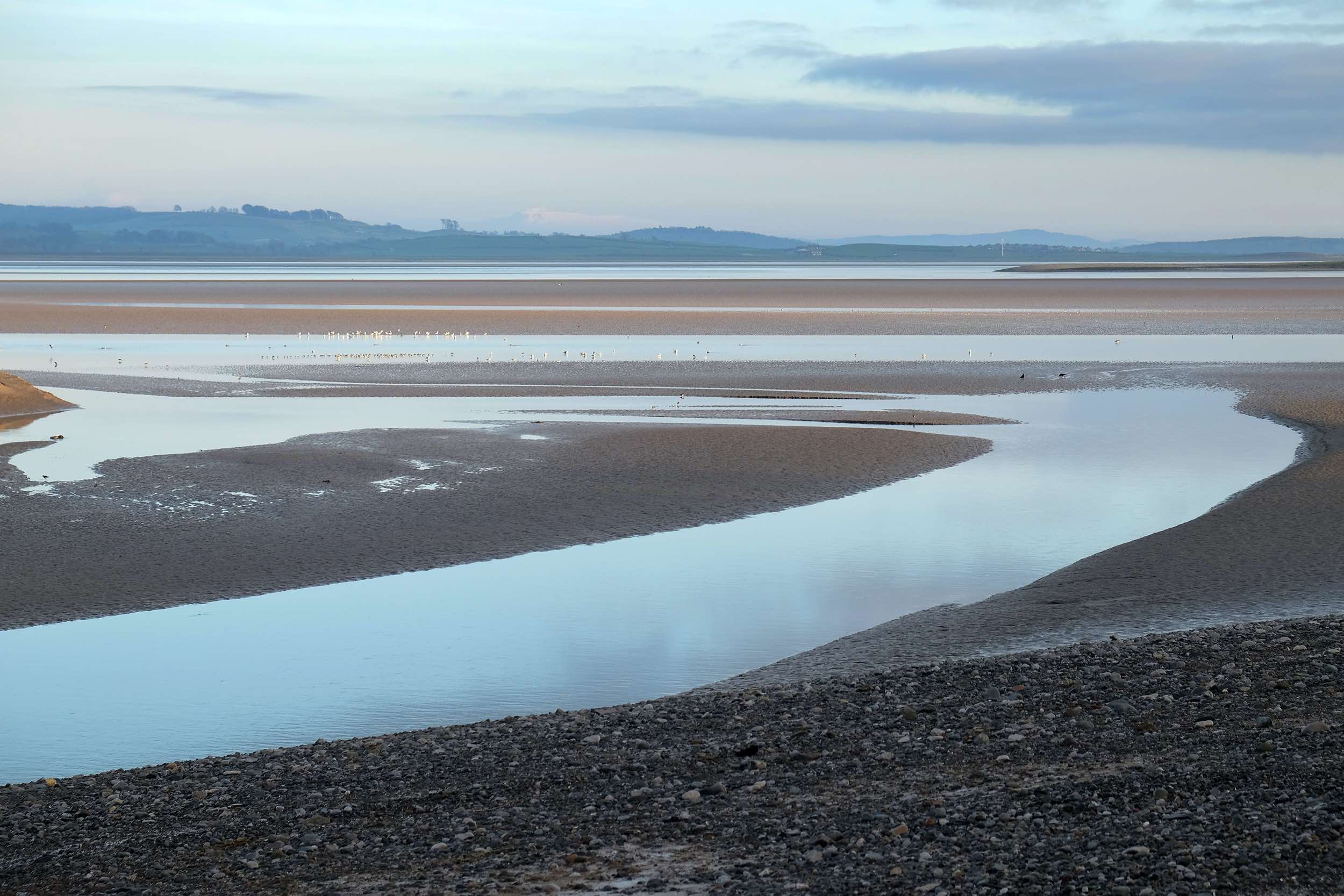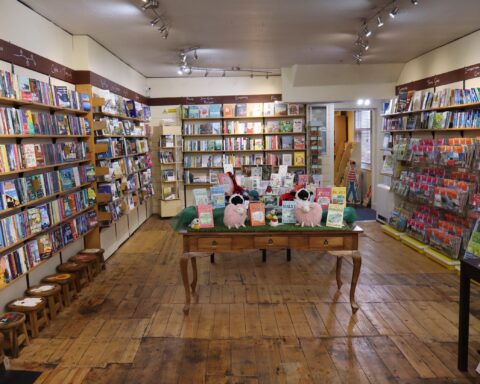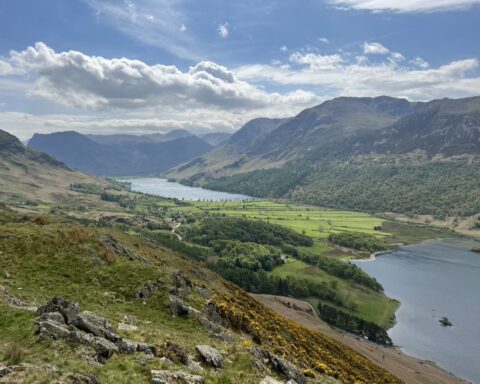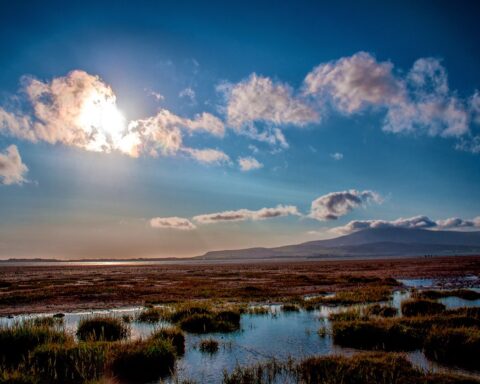The peninsulas of south Cumbria stretch like spindly fingers far out into Morecambe Bay, a massive expanse of mudflats and shifting sands that lend this part of the region an otherworldly feel. Here you’ll find ‘seaside’ towns with very little sea, places such as Grange-over-Sands, where a walk along the promenade is more likely to be accompanied, not by the sound of the waves, but of sheep bleating on the salt marshes and birds calling to each other as they seek out a meal on the mudflats.
Twice a day, the shallow sea comes rushing in to cover the sands and travel up the estuaries – and it moves at a phenomenal rate. The Kent estuary, in fact, is the location of a tidal bore, a rare phenomenon which involves the leading edge of an incoming tide forming a rapidly moving wave as it forced up into the narrowing estuary. This can be seen several times a year.
The combination of fast-changing tidal conditions and the existence of quicksands makes Morecambe Bay a potentially lethal place. There have been many fatalities here over the years, most famously in 2004 when 21 people picking cockles on the sands were drowned after being cut off by the rising tide. Public rights of way cross the estuaries in a few places, but these are extremely dangerous and should not be attempted without a guide. Official guides, named by royal appointment, have existed since the sixteenth century. The unusual habitats of Morecambe Bay mean it’s home to a diverse range of often endangered wildlife. In winter and during migratory periods, it shelters tens of thousands of waders and wildfowl, and its salt marshes and dune systems are among the few places in England where you can still find the noisy natterjack toad. Inland, conservationists are working hard to protect declining species such as the high brown fritillary butterfly. Visit in spring for a chance of spotting Teesdale violets, or in late summer and early autumn for autumn lady’s tresses, delicate orchids not often seen this far north.





